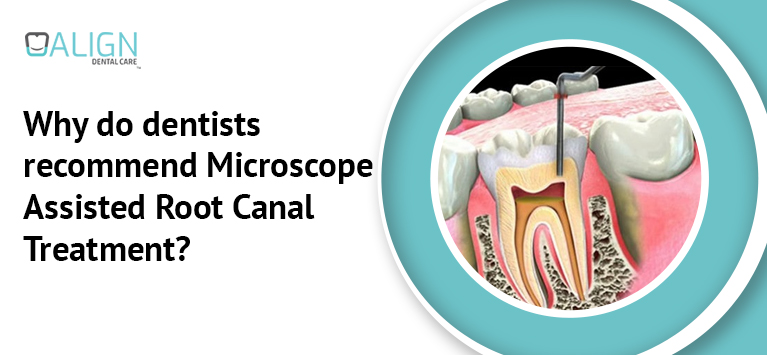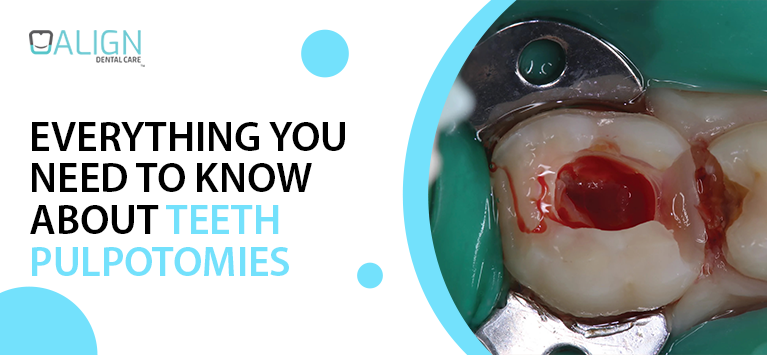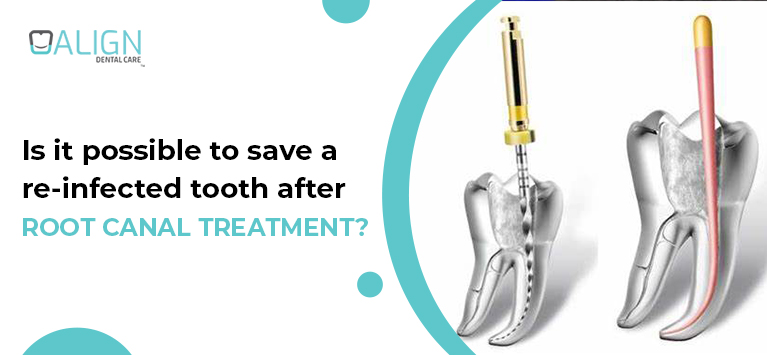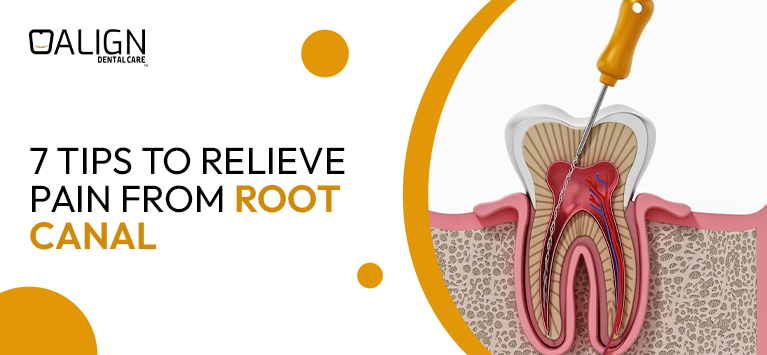
Why do dentists recommend Microscope-assisted Root Canal Treatment?
When tooth decay or tooth trauma is left untreated, they open paths with which the oral bacteria enter the tooth and damage the tooth’s pulp chamber. The pulp is made up of nerves, blood vessels, connective tissues, and other fibrous particles essential for a tooth.
It means the bacterial contamination in the pulp chamber makes a tooth more painful and troublesome. Hence the damaged pulp should be removed surgically to stop the infection progresses. Root Canal Treatment (RCT) is a straightforward therapy and it aims at disinfecting the tiny channels inside a tooth root, shaping the canals, and filled with a special material to preserve the diseased tooth.
Regular RCT involves utilizing manual instruments to clean and shape the root canals. The introduction of DOM (Dental Operating Microscopes) in endodontic treatments elevates the success rate of this procedure. We have explained it in detail here.
Table of Contents
Why does the Root Canal procedure need Microscope?
To ensure accuracy and precision of the treatment.
Generally, the root canals are too narrow and have complex anatomical structures so that some minute channels are hard to see with a naked eye. Hence it is clear that some infected branches might be undetected that leading to further infection that will push the victim to get retreatment.
An endodontist can see the subtle structure of the root canals with a state-of-the-art dental microscope. As a dental microscope can magnify up to 2 to 25 times, and it is aided with high-intensity lighting, the DOMs help in visual enhancements of accessing root canals.
In essence, microscope-assisted root canal treatments have ensured success rates due to the improved assessment of the root canals.
What are the advantages of Microscope Endodontics?
The improved magnification has an enormous amount of advantages in Root Canal Therapy. Here are a few:
- The enhanced visibility helps in better diagnosis (i.e.) detecting tiny painful fractures in the root canal. Similarly, it makes better imaging of the fine structures of the traumatic or infected regions inside a tooth. It is clear that using microscopes in endodontics assures better diagnosis.
- With the help of dental microscopes, Endodontists can detect how far to go into the teeth and identify where the root ends. It helps in detecting the blockages, calcified accumulations in the root canal more accurately than the regular RCT procedure.
- Besides cleaning the infected regions with much precision, the DOMs reduce the chance of injuring the neighboring healthy tissues.
- In rare cases, surgical instruments like root canal files get lodged between the tiny channels of pulp chamber. They also cause intense pain in the treated tooth and lead the patient to get treated again. It does not occur with microscope endodontics.
Bottom line
Root Canal Treatment has made preserving a deeply decayed tooth possible whereas the inclusion of magnifying objects such as microscope has enhanced the treatment’s quality. This advancement eliminates the possible defects of endodontic treatments and ensures their success rate.
The endodontists in our clinic have expertise in handling the modern tools to extract the root canal and deliver sophisticated solutions in soft pulp tissue cleaning with DOMs. To know more about this or exploit our advanced RCT solutions, contact us here.
















